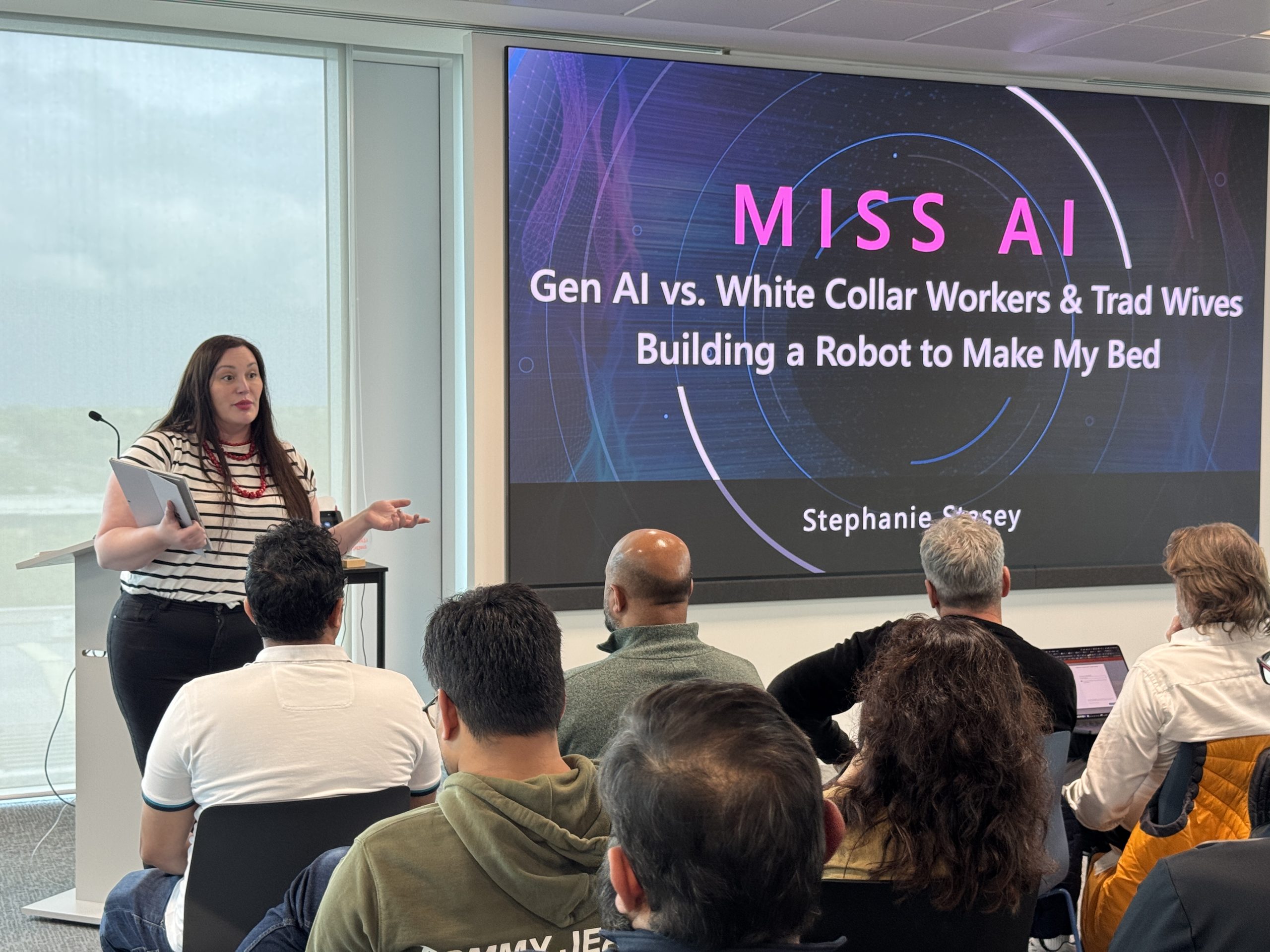Yesterday evening, I was at the Bletchley AI User Group in Milton Keynes. One of the talks was from Stephanie Stasey (/in/missai) (aka Miss AI), titled “Gen AI vs. white collar workers and trad wives – building a robot to make my bed”.
It was delivered as a monologue – which sounds negative, but really isn’t. In fact, it was engaging, sharp, and packed with food for thought. Stephanie brought a fresh perspective to a topic we’re all thinking about: how AI is reshaping both the world of work and the way we live at home.
The labour that goes unnoticed (but not undone)
One part of the talk touched on “trad wives” – not a term I was especially familiar with, but the theme resonated.
If you’d asked my wife and I in our 20s about how we’d divide up household tasks, we might have offered up a fair and balanced plan. But real life doesn’t always match the theory.
These days, we both work part-time – partly because unpaid labour (childcare, cooking, washing, cleaning, all the life admin) still needs doing. And there don’t seem to be enough hours when the laptop is closed.
The system isn’t broken – it’s working exactly as designed
The point I’ve been turning over for a while is this: it feels like we’re on the edge of something big.
We could be on the brink of a fundamental shift in how we think about work – if those in power wanted to make radical changes. I’ll avoid a full political detour, though I’m disheartened by the rise of the right and how often “ordinary people” are reminded of their place. (My youngest son calls me a champagne socialist – perhaps not entirely unfairly.)
Still, AI presents us with a rare opportunity to do things differently.
But instead of rethinking how work and value are distributed, we’re told to brace for disruption. The current narrative is that AI is coming for our jobs. Or a variation on that theme: “Don’t worry,” we’re told, “it won’t take your job – but someone using AI might”. That line’s often repeated. It’s catchy. But it’s also glib – and not always true.
I’m close enough to retirement that the disruption shouldn’t hit me too hard. But for my children’s generation? The impact could be massive.
What if we taxed the agents?
So here’s a thought: what if we taxed the AI agents?
If a business creates an agent to do the work a person would normally do – or could reasonably do – then that agent is taxed, like a human worker would be. It’s still efficient, still scalable, but the benefits are shared.
And, how would we live, if the jobs go away? That’s where Universal Basic Income (UBI) comes in (funded by taxes on agents, as well as on human effort).
Put simply, UBI provides everyone with enough to cover their basic needs – no strings attached. People can still work (and many will). For extra income. For purpose. For contribution. It just doesn’t have to be 9-to-5, five days a week. It could be four. Or two. The work would evolve, but people wouldn’t be left behind. It also means that the current, complex, and often unjust benefits system could be removed (perhaps with some exceptions, but certainly for the majority).
What could possibly go right?
So yes, the conversation around AI is full of what could go wrong. But what if we focused on what could go right?
We’ve got a window here – a rare one – to rethink work, contribution, and value. But we need imagination. And leadership. And a willingness to ask who benefits when the machines clock in.
Further reading on UBI
If you’re interested in UBI and how it might work in practice, here are some useful resources:
- World Bank: Exploring Universal Basic Income
- The Guardian: Universal Basic Income of £1,600 a Month to Be Trialled in England
- YouGov: What Do Britons Think of Universal Basic Income in 2024?
- University of Bath: Assessing the Case for a Universal Basic Income in the UK
Featured image: author’s own.

Leave a Reply